Evelyn Glennie Quotes & Sayings (Page 4)
Evelyn Glennie quotes and sayings page 4 (60 year old musician). Here's quote # 31 through 40 out of the 48 we have for her.
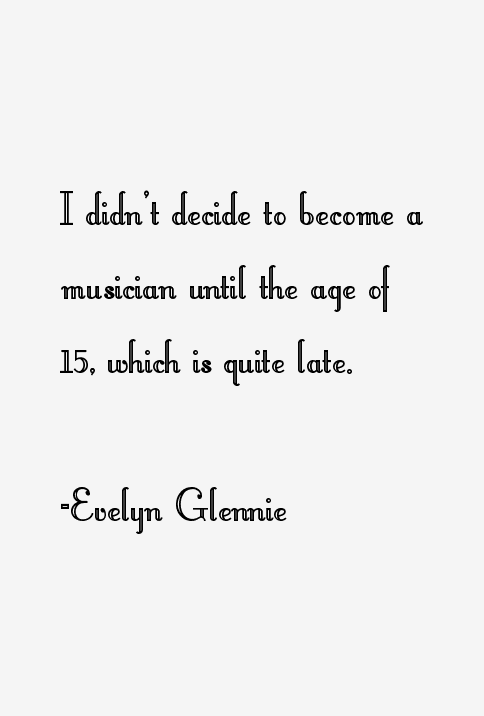
“I didn't decide to become a musician until the age of 15, which is quite late.”
“And as I grew older, I then auditioned for the Royal Academy of Music in London, and they said, well, no, we won't accept you, because we haven't a clue - you know - of the future of a so-called 'deaf' musician. And I just couldn't quite accept that.”
“If I just simply let go, and allow my hand, my arm, to be more of a support system, suddenly - I have more dynamic with less effort. Much more, and I just feel, at last, one with the stick, and one with the drum.”
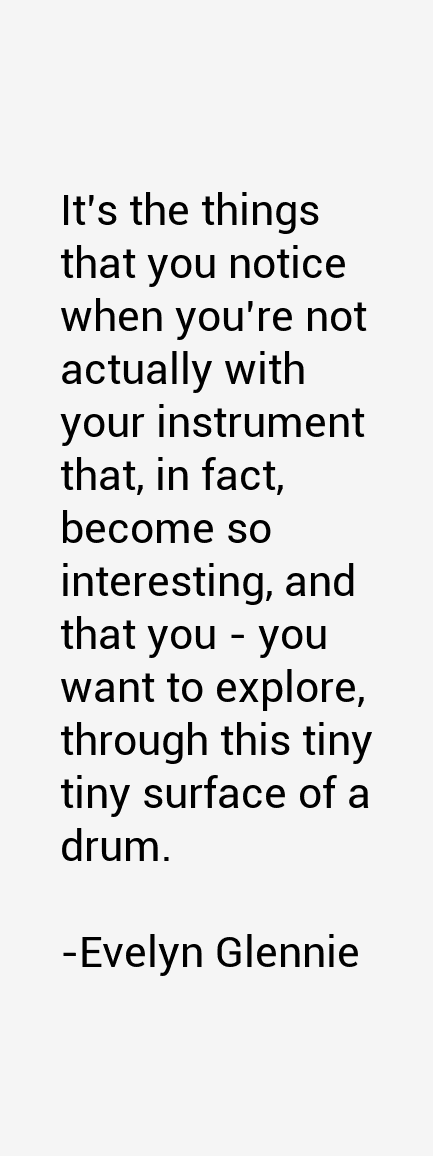
“It's the things that you notice when you're not actually with your instrument that, in fact, become so interesting, and that you - you want to explore, through this tiny tiny surface of a drum.”
“There's still a lot I need to do as a player, as a musician, as a sound creator. I have commissioned 170 pieces: that's still not enough, there are still lots and lots of composers I would like to approach. When I see a composer and I see a performer, I think to combine those forces.”
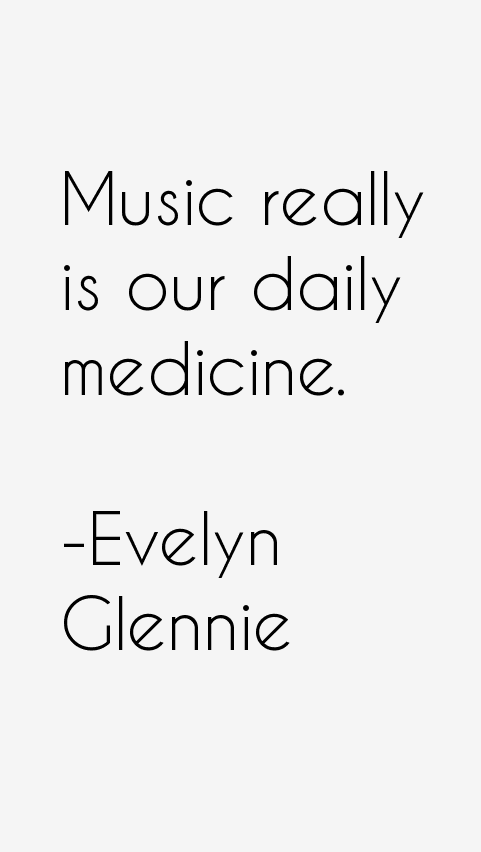
“Music really is our daily medicine.”
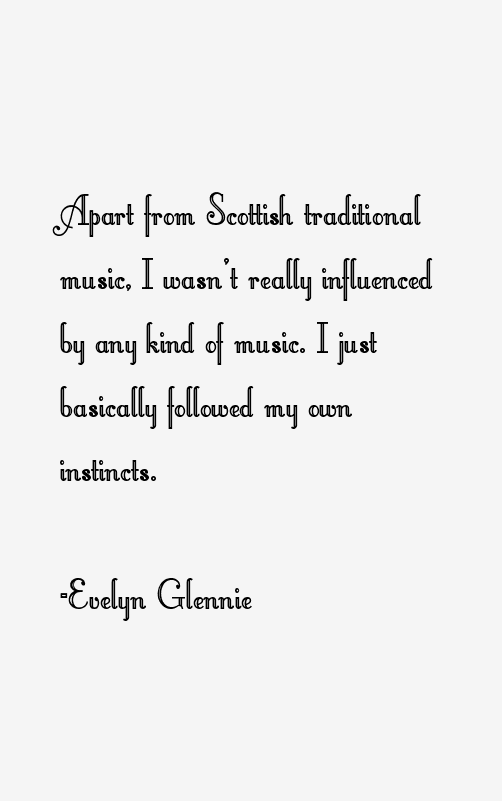
“Apart from Scottish traditional music, I wasn't really influenced by any kind of music. I just basically followed my own instincts.”
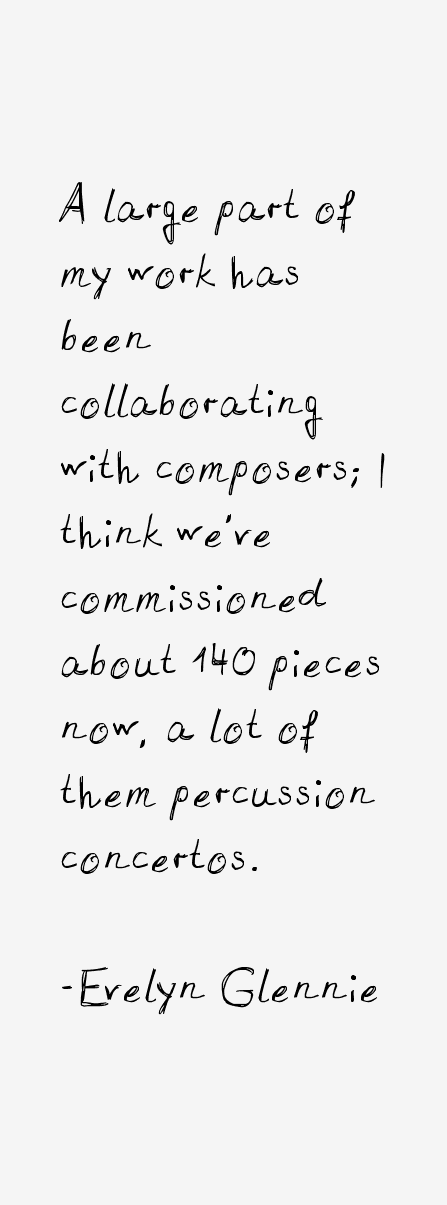
“A large part of my work has been collaborating with composers; I think we've commissioned about 140 pieces now, a lot of them percussion concertos.”
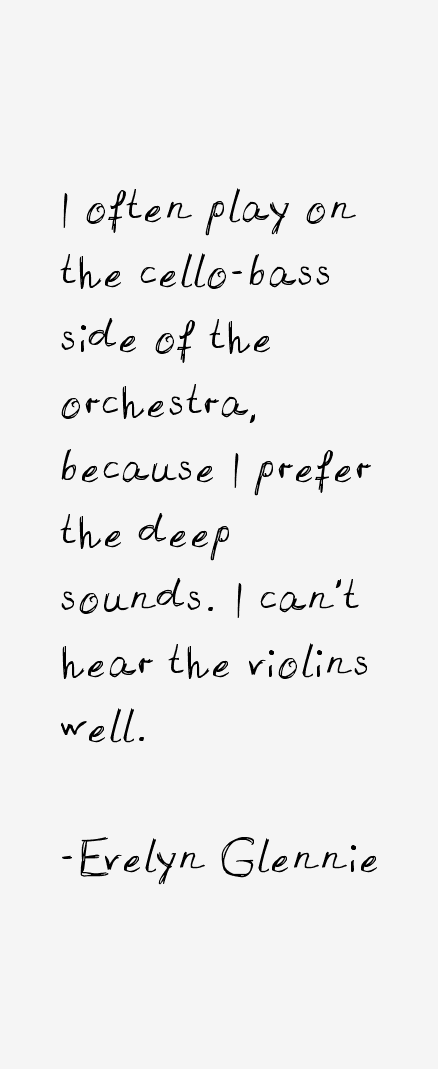
“I often play on the cello-bass side of the orchestra, because I prefer the deep sounds. I can't hear the violins well.”
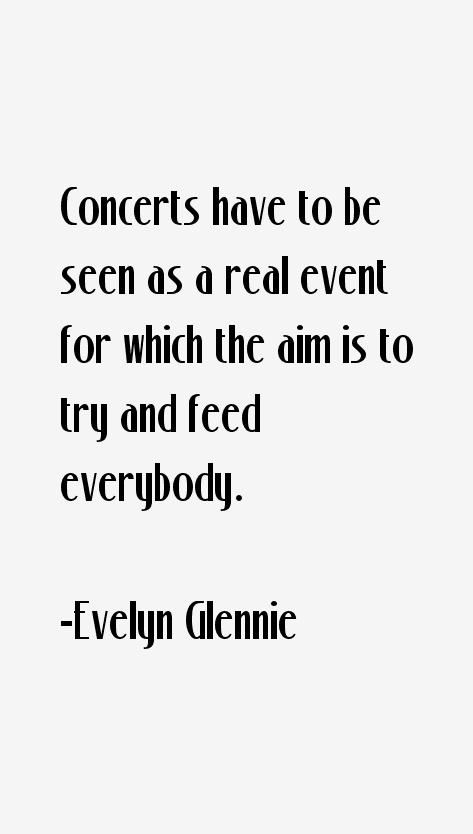
“Concerts have to be seen as a real event for which the aim is to try and feed everybody.”
Evelyn Glennie Quotes Rating
No Ratings Yet
Leave A Comment
























